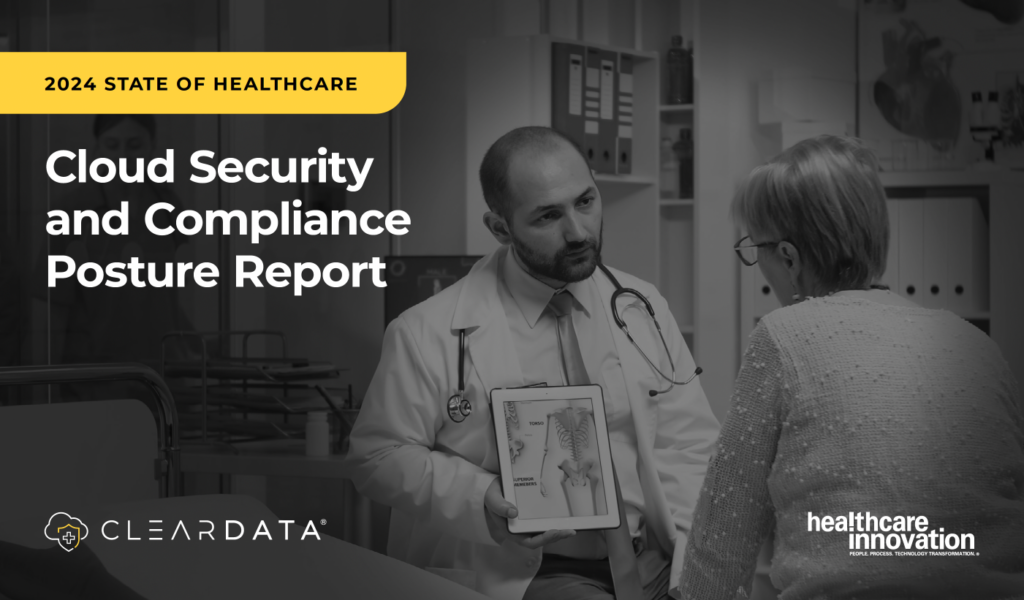Enhancing Healthcare Data Security: Tips On How to Locate PHI In The Cloud
Protected Health Information (PHI) includes any data related to health status, healthcare provision, or payment that can identify an individual. Maintaining the confidentiality and integrity of PHI is not only a legal obligation under HIPAA but also a core aspect of patient trust and safety.
The Role of Cloud Data Management in Healthcare
Understanding where PHI is stored and how it is accessed is essential to protecting it from unauthorized access and potential breaches. There is an alarming rise in healthcare data breaches, which pose a serious threat to patient privacy. The increasing frequency of these incidents underscores the importance of robust security measures and comprehensive data management strategies in the healthcare sector.

Sensitive Data Governance: Locating PHI In The Cloud
The relationship between locating Protected Health Information (PHI) and sensitive data governance is integral, particularly in industries like healthcare where the management of sensitive data is heavily regulated.
Sensitive data governance in the cloud refers to the policies, processes, and technologies that ensure sensitive data is managed, protected, and controlled within a cloud environment. Sensitive data typically includes information that is personally identifiable (PII), protected health information (PHI), financial data, intellectual property, and any data that could cause harm if disclosed, altered, or destroyed. Let’s dive into the key elements of sensitive data governance in the cloud.
Sensitive Data Governance in the Cloud
1. Data Classification
Sensitive data governance begins with classifying data based on its sensitivity level. Cloud providers and organizations must categorize their data, distinguishing between public, confidential, and sensitive information. This classification helps determine the level of protection and controls required for each type of data.
2. Access Controls
In the cloud, access to sensitive data must be tightly controlled. This includes implementing identity and access management (IAM) systems, role-based access control (RBAC), and multi-factor authentication (MFA). Only authorized users should have access to sensitive information, and their access should be limited to the minimum required to perform their job functions, following the principle of least privilege.
3. Data Encryption
Data encryption is essential for protecting sensitive data in the cloud. Data should be encrypted both at rest and in transit to ensure it remains unreadable to unauthorized parties. Most cloud service providers offer encryption options, but it is important to ensure that encryption keys are securely managed, often using a customer-controlled key management service (KMS) to maintain control over the encryption keys.
4. Data Lifecycle Management
Sensitive data governance also involves managing data throughout its lifecycle—from creation to deletion. This includes establishing data retention policies, archival strategies, and secure deletion methods to ensure that sensitive information is stored only as long as necessary and disposed of securely when no longer needed.
5. Compliance and Regulatory Requirements
Organizations must ensure that their cloud infrastructure complies with relevant regulations, such as GDPR, HIPAA, or PCI DSS, depending on the industry. Cloud providers often provide certifications and tools to help organizations meet compliance standards, but it remains the organization’s responsibility to validate that the provider’s solutions align with regulatory requirements.
6. Auditability and Monitoring
Continuous monitoring and auditing of cloud environments are necessary to ensure that sensitive data is handled appropriately. Automated monitoring tools can track access logs, detect unauthorized access attempts, and alert security teams to potential breaches. Regular audits also help verify that governance policies are being followed and that the cloud environment remains secure and compliant.
7. Data Residency and Sovereignty
Sensitive data governance in the cloud must account for where data is stored and processed. Different countries have varying regulations regarding data residency, which means that sensitive data may need to remain within certain geographical boundaries. Cloud providers typically offer region-specific data centers to address these requirements, but organizations must ensure they comply with local laws related to data sovereignty.
8. Incident Response and Breach Management
Having a well-defined incident response plan is essential for addressing security breaches and potential data loss. Cloud governance must include processes for detecting breaches, mitigating damage, notifying affected parties, and conducting post-incident reviews to strengthen security moving forward.
9. Shared Responsibility Model
In the cloud, data governance follows the shared responsibility model, where both the cloud provider and the customer play a role in securing data. Cloud providers are responsible for the security of the infrastructure, while the customer is responsible for securing data, applications, and access within that infrastructure. Clear delineation of responsibilities is critical for effective governance.

Benefits of Effective Sensitive Data Governance
-
- Patient Safety: By safeguarding PHI, healthcare organizations create a safety net for patient information, reducing the risk of data breaches.
-
- Regulatory Compliance: Adhering to HIPAA compliance and other regulations is streamlined through robust data governance structures.
-
- Optimized Operations: Streamlined data processes lead to more efficient healthcare services and reduced administrative burdens.
-
- Enhanced Cybersecurity: Proper governance acts as a defense mechanism against cyber threats, protecting both patient privacy and organizational integrity.
Maintain Continuous Cloud compliance With ClearDATA
ClearDATA offers a tailored approach to PHI protection, focusing on healthcare-specific needs. Their CyberHealth™ Platform provides real-time analysis against stringent healthcare frameworks, ensuring that PHI is secure and easily identifiable across cloud environments.
To ensure the security of your Protected Health Information (PHI), our Sensitive Data Governance systems not only detect vulnerabilities but also provide actionable remediations. Understanding your compliance landscape is made easy with our Risk Assessments & Visualizations, which include fully credentialed scans of your virtual machines’ operating systems and applications, with results delivered weekly.
Our ClearDATA compliance engineers are here to assist you in gathering crucial evidence for audits, including HIPAA and HITRUST requests.
Together, we’ll help you navigate the complexities of data governance with confidence.
FAQs
What is considered protected health information?
Protected Health Information (PHI) is any health-related data that can identify an individual, including medical records, payment details, and treatment information.
How do you identify PHI?
PHI is identified by its association with specific identifiers such as names, social security numbers, or medical record numbers, which link the information to an individual.
What are the steps to secure PHI?
To secure PHI, healthcare organizations should implement strong access controls, regular data audits, encryption, and employee training on data protection best practices.



